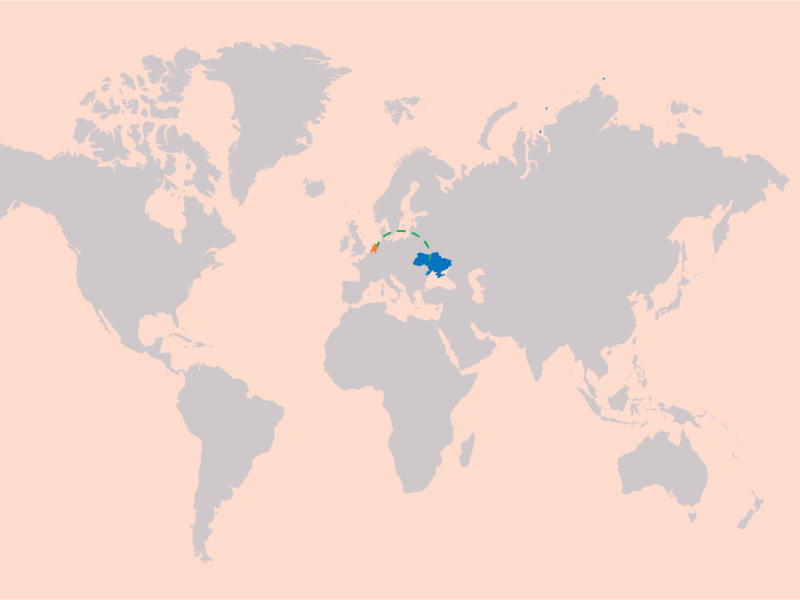How do they do it in Ukraine?
Every NREN has its challenges, but war is of a different order. Ukraine's URAN is therefore going through difficult times. But in doing so, it does show the strength of the network - in several senses.
In a corner of the URAN office, a balloon is floating. It's in the colours of the Ukrainian flag: the blue of the sky above the yellow of the wheat fields. It was a birthday present from the employees for their director, explains marketing communications manager Tetiana Preobrazhenska.
The birthday was a week ago, but the balloon is still happily floating along the ceiling. "It's still alive," Tetiana notes with satisfaction.
Facilitator for education and research
URAN is also alive, beyond expectation. Before the military conflict with Russia, it was a typical NREN: URAN ran Ukraine's national academic network and its connection to the European GÉANT. Furthermore, it helped universities with networking issues and advised the government on European research initiatives such as EOSC.
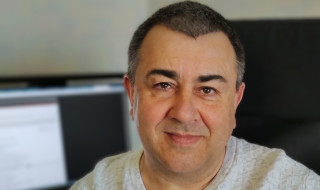
Yevhenii Preobrazhenskyi, CEO URAN
According to its executive director, Yevhenii Preobrazhenskyi, URAN can therefore best be described as a facilitator for research and higher education. "Our biggest challenge was to make universities aware of all that GÉANT offers: not only the network but also the opportunities for cooperation with the European world of research and education."
Amputation
The first blow came in 2014, when Russian troops took control of parts of the Donbas and Crimea. "Universities in these areas were among our biggest customers," says Tetiana. "Many of their staff fled to safe parts of Ukraine, but an important part of our infrastructure, such as fibre-optic connections and equipment, was lost."
It was like an amputation. Yevhenii explains: "We are not a government organisation and have to support ourselves. Therefore, there was no compensation for what was lost in 2014. Equipment, people and universities - we just lost them."
Calling every day
But no one saw the next blow coming. It landed in early 2022, when Russia invaded Ukraine from four sides.
The first weeks were the toughest, Tetiana says. "At that time it was really about staff safety. There was fighting in the streets of Kyiv, as the Russians tried to occupy the capital right away. We couldn't possibly get to the office."
"We immediately switched to working from home. We are not a big organisation. Yevhenii called everyone every day to ask how they were doing, whether they needed help, for example to move out to safer locations in Ukraine or abroad."
"Indeed, GÉANT and many fellow NRENs offered to take in people from us with family and all and provide shelter," Yevhenii explains. "The Polish colleagues even assured us they would be ready at the border to help with everything."
Evacuated
Some employees indeed fled abroad, but generally they remained on site. Except in areas where the Russians invaded. Yevhenii: "Kherson was attacked in the first few days. Our staff there were evacuated to western Ukraine together with the university."
"In that new place, we were able to quickly establish connections to the URAN network. We also provided some of the computers, as there were only empty rooms without equipment."
"This war shows that technology can save a lot."
Institute shelled
The country's second city, Kharkiv, was also badly hit. One of the research institutes there takes part in experiments with the Large Hadron Collider and used a lot of URAN's bandwidth. "We had already planned to scale up to 40 gigabit per second," recalls Yevhenii.
It did not come to that: at the start of the invasion, the institute's buildings were shelled by Russian artillery. "They had to shut everything down, especially nuclear research," he says.
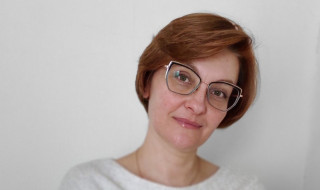
Tetiana Preobrazhenska, marketing communications manager URAN
By now, the researchers want to cautiously resume their work. But it is not clear how that can happen, says Tetiana: "Kharkiv is close to the border. It is still one of the cities that are shelled the most."
Fighting back
But like the Ukrainian army, URAN also managed to fight back. Tetiana: "Fortunately, our network had remained relatively intact. One of our two international links had been severed, but by early April 2022 we had it back up and running."
"The great luck was that our technicians could run everything remotely. The physical equipment was out of range, but a lot proved possible with the network services offered by GÉANT. That was really a miracle under the circumstances. This war shows that technology can save a lot."
Revenue largely fell away
Still, it was questionable whether URAN itself would survive. Many Ukrainian universities have been hit hard by the war. Besides all the material damage and disruption, the number of students also fell. Some joined the army; many chose to study abroad.
Under these circumstances, institutions found it difficult or impossible to raise their contributions to URAN. Thus, the organisation's only source of income largely fell away.
Donations
Fortunately, help came. GÉANT started raising money to keep URAN afloat. In this scheme, NRENs donate their contributions through the Vietsch Foundation, a Dutch organisation that funds networking initiatives for research and education. The money allows URAN to maintain its services and expertise. Yevhenii: "We are very, very grateful for this support."
The donations allow URAN to maintain its services and expertise.
SURF too is contributing. Not only the organisation, but also individual employees, Tetiana explains. "At one of their Friday afternoon drinks, they thought of us and spontaneously decided to donate money from their own pockets. We found that really moving."
Sometimes support comes in kind. As we know, Russia opened a new front: Ukraine's power supplies were attacked with missiles and drones. Yevhenii: "From the end of October, this became a big problem: on some days there was only three to four hours of electricity. We had a generator, but it failed. After all, they are not made to run so long and so often." Fortunately, GÉANT sent a replacement.
Every minute danger
What is the situation like now? Is a 'new normal' already taking shape? Yevhenii sighs: "The situation is far from normal. Russian attacks are still a daily reality. Consequently, the mental stress is not getting less. It is still hard to believe that this is happening in my own country, in the 21st century."
With URAN's help, universities are evacuating their digital infrastructure to the cloud.
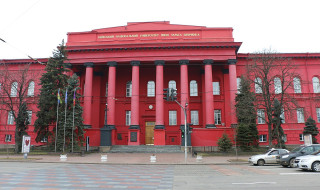
University building in Kiev, Ukraine (photo: Prymasal)
"Every minute there is the awareness of danger," Tetiana explains. "It also has an impact on productivity. When the air alarm goes off, people have to go to the shelters right-away. Then everything stops."
The network is not safe either, she continues, "Where a missile knocks out the power supply, our connectivity drops immediately. Then our technicians have to wait until electricity is restored before they can start everything up."
To the cloud
One concern relates to university data. The war could cause enormous damage there. It was therefore very welcome when Scandinavian NRENs offered storage space for backups last year.
For the same reason, universities are now evacuating their digital infrastructures to the cloud. With URAN's help, they are using the European OCRE project: Open Clouds for Research Environments. That project negotiates advantageous framework agreements with commercial cloud providers on behalf of the European research community.
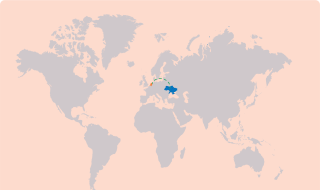
"OCRE helps us and our universities," says Yevhenii, "because in Ukraine there are no safe places left. But we are looking for sponsorship. In the early days, providers made their services available to Ukraine for free, but that is changing."
Cyber attacks
With that said, the war has changed URAN's work. "In addition to our old tasks, we are now mainly engaged in strengthening the digital resilience of universities," says Tetiana.
"Universities are regularly attacked with hacks and malware. We try to help them with that too."
"Also cyber resilience," Yevhenii adds. "Because the Russians don't just use grenades and missiles: our universities are regularly attacked with hacks and malware. We try to help them with that too."
Community
Under these circumstances, can URAN plan for the future? Tetiana laughs: "First we have to win the war! After that, we can start building."
But one thing has already changed for the better: URAN is now truly part of the GÉANT community. "That might be the most important result of this whole situation for us," says Yevhenii.
Text: Aad van de Wijngaart
Photo university building: Prymasal
'How do they do it in Ukraine' is a SURF Magazine article.
Back to SURF Magazine
Questions about this article? Mail to magazine@surf.nl.
